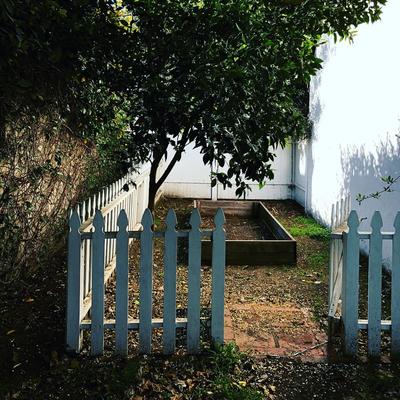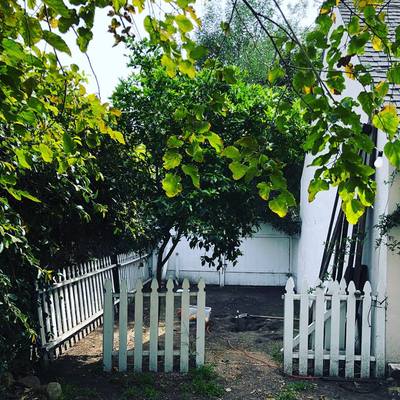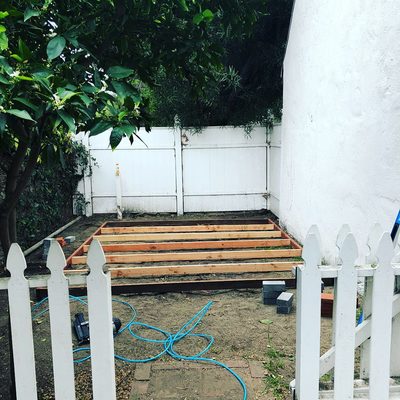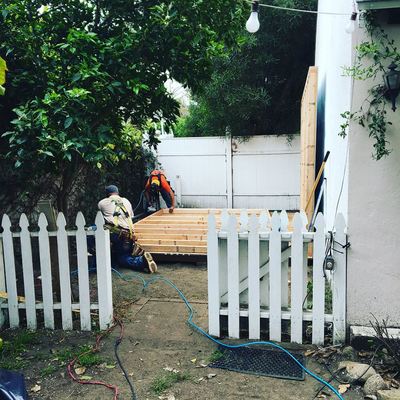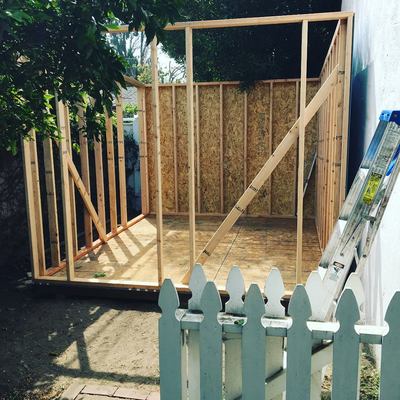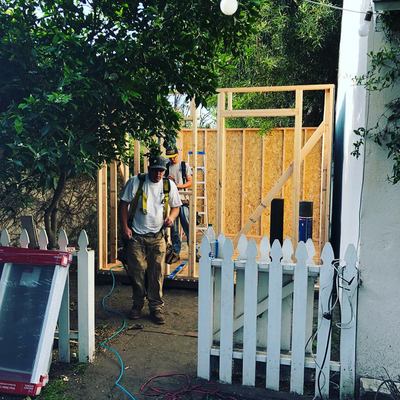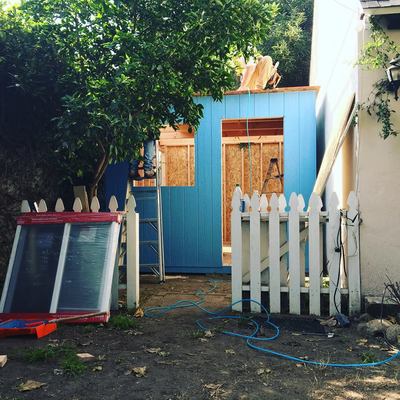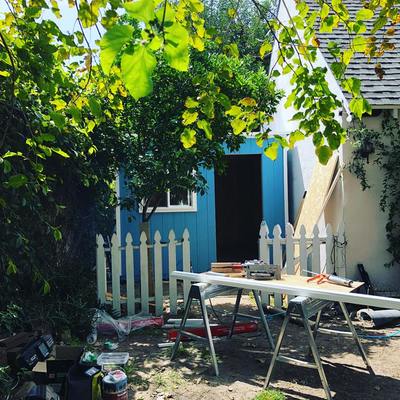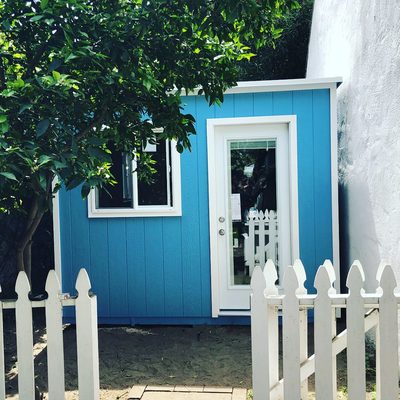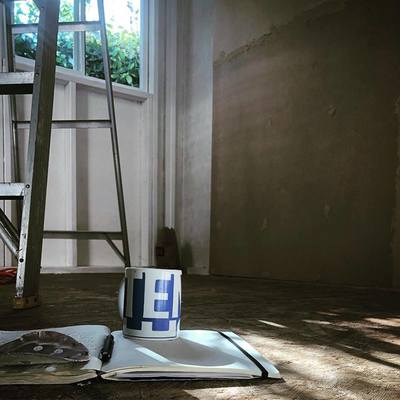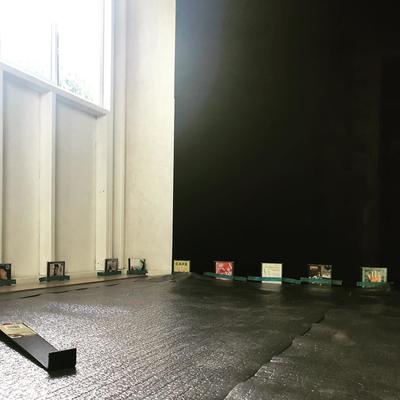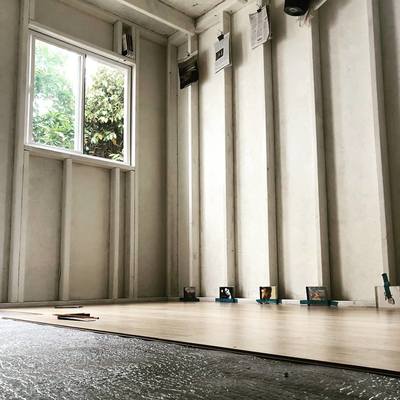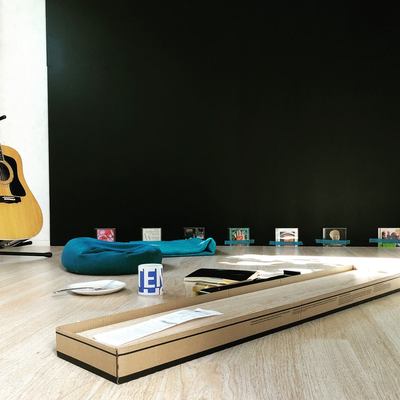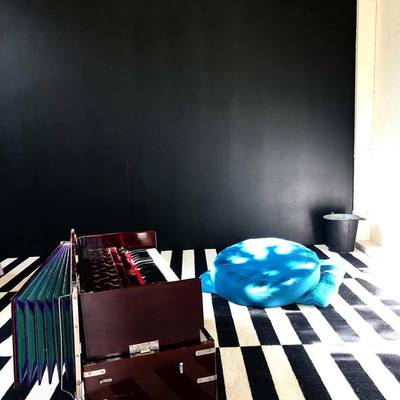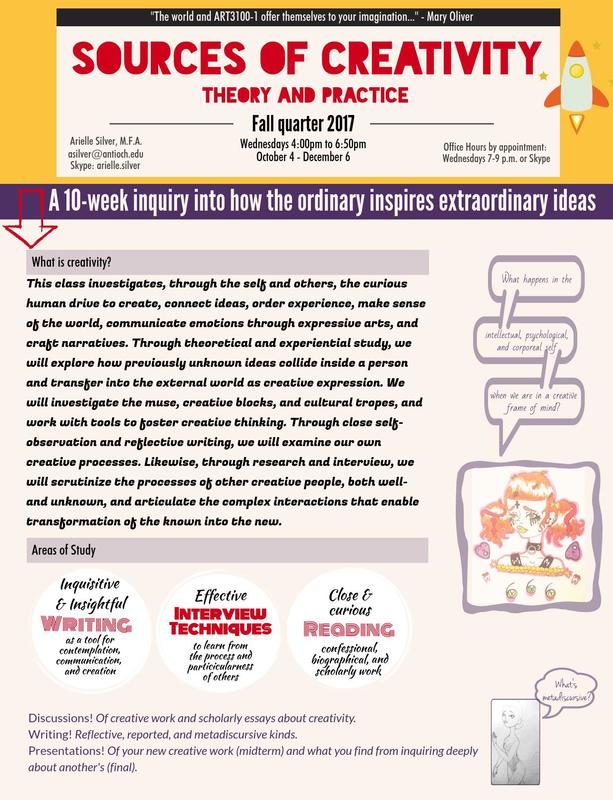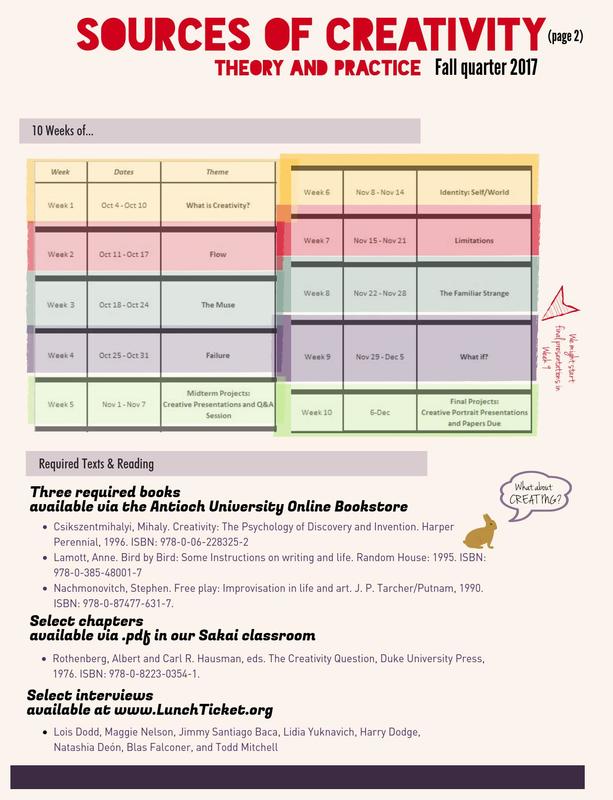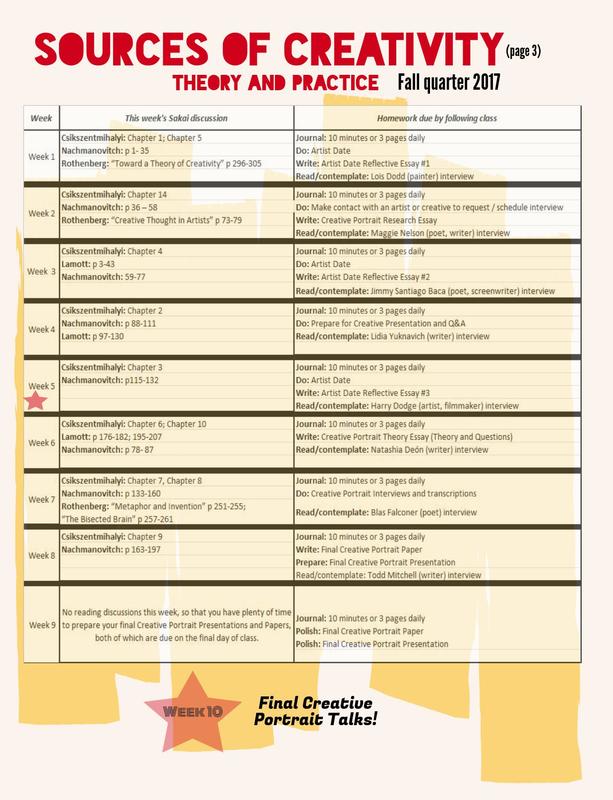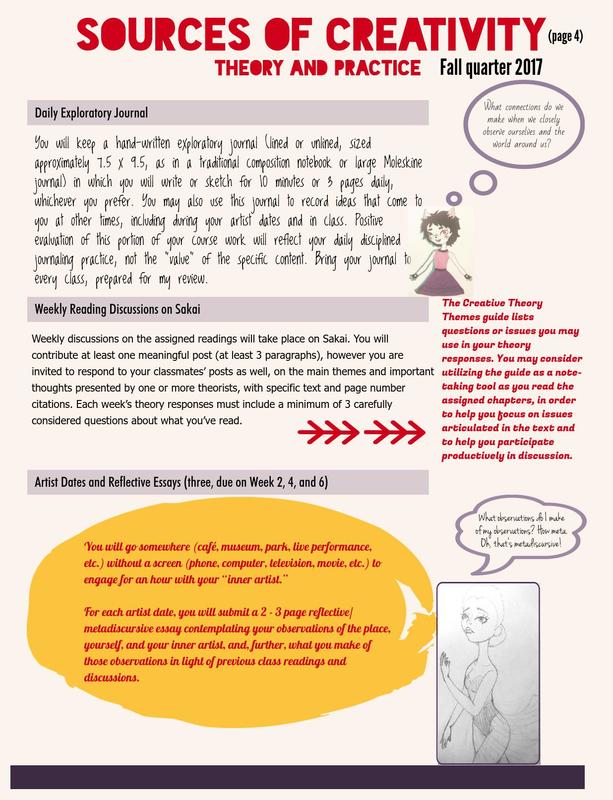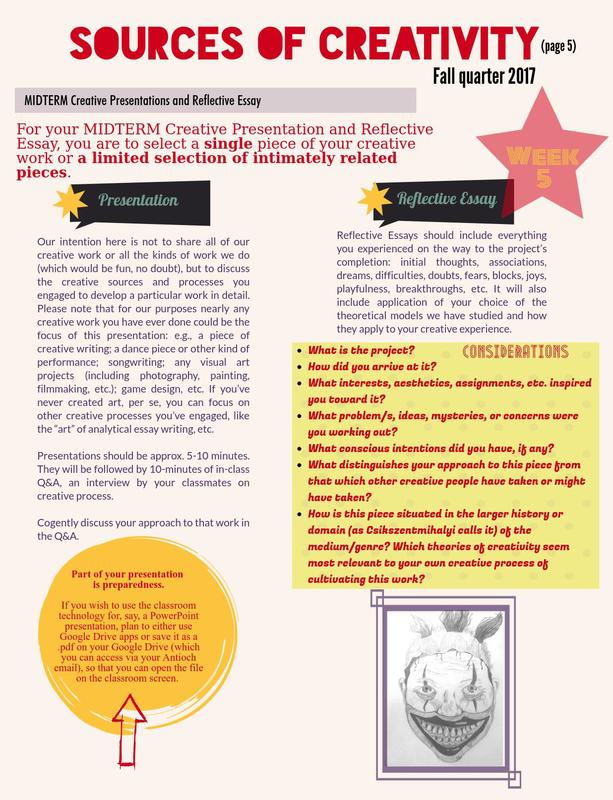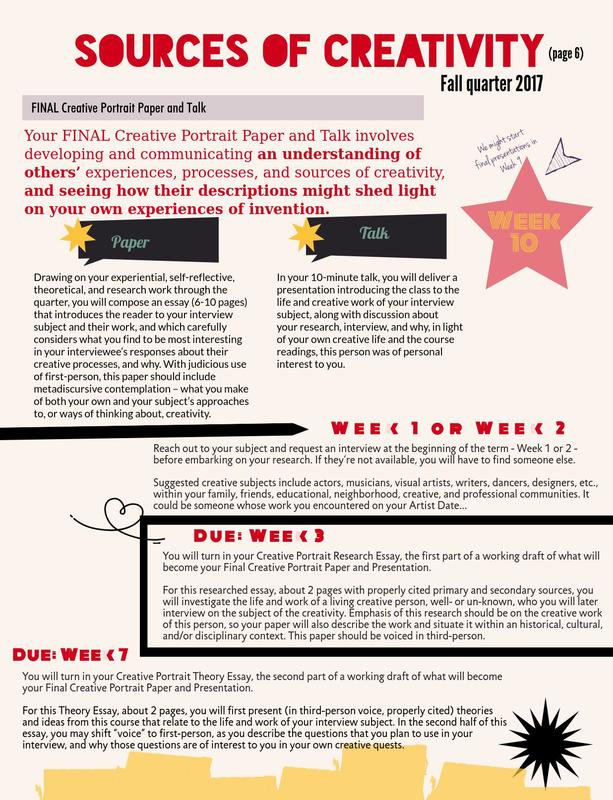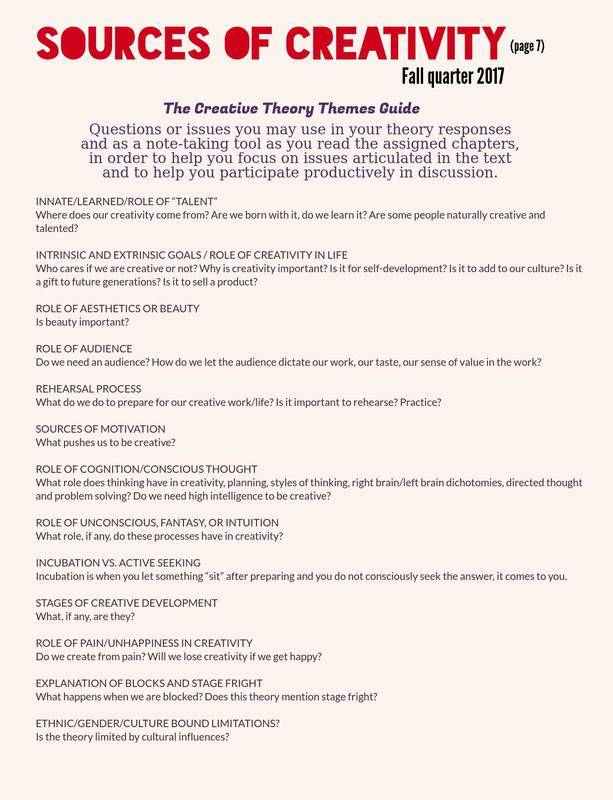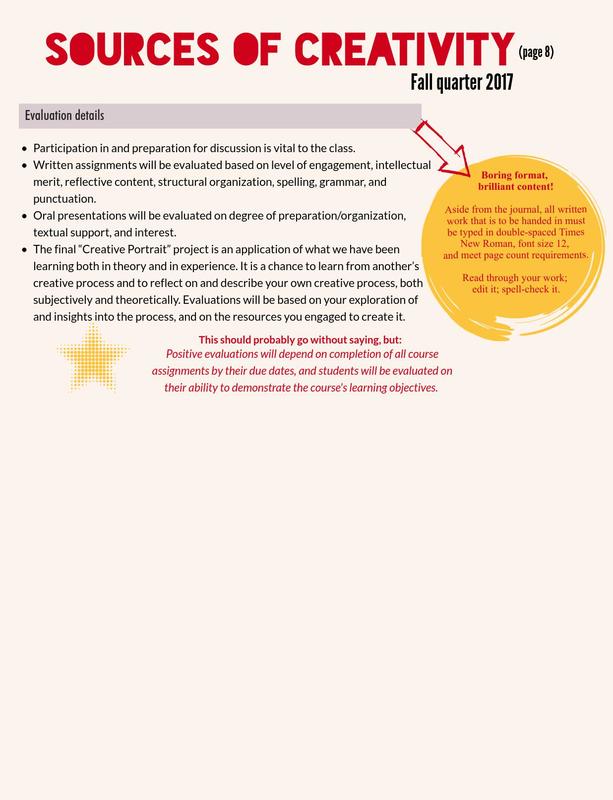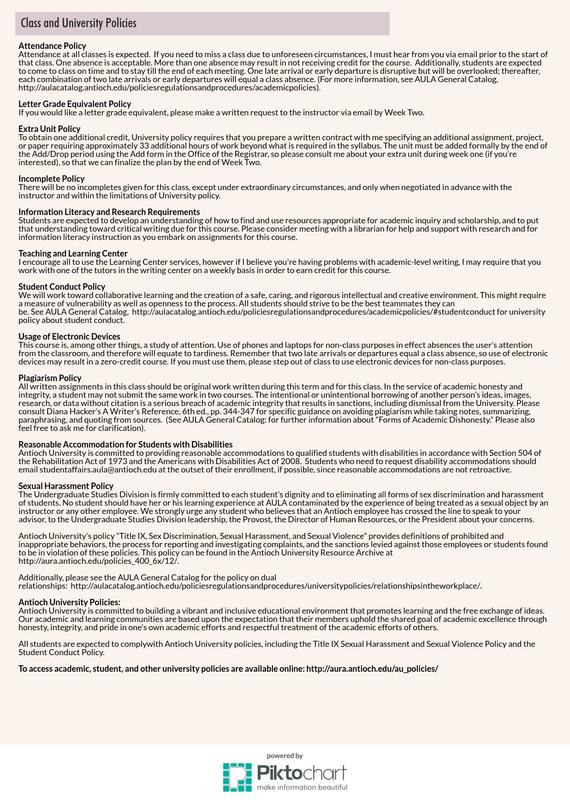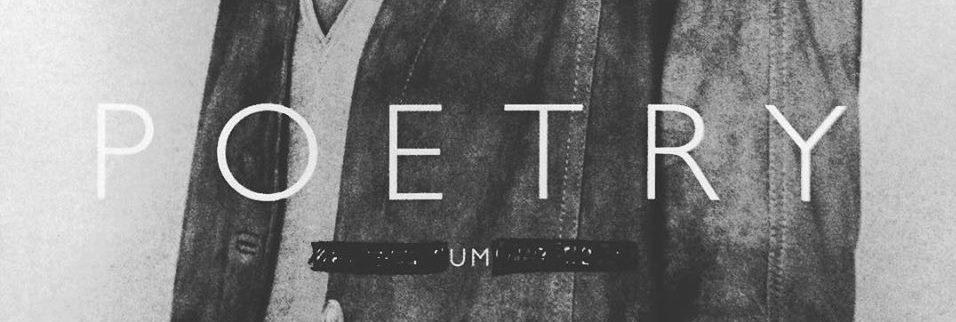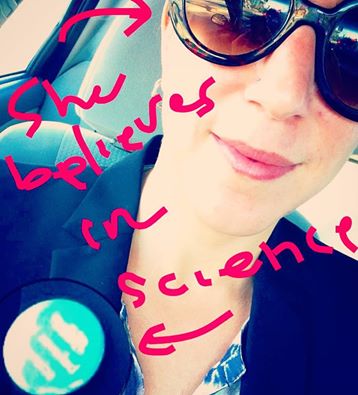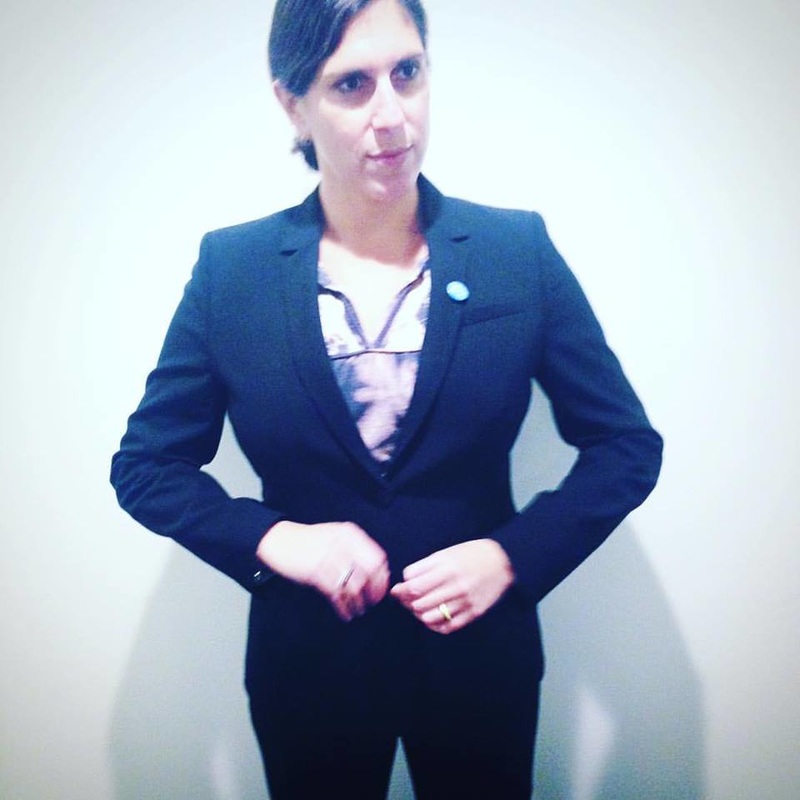|
In my early adulthood, with aspirations not for wealth but for creative fulfillment, I disciplined myself to live down to the bone. I nurtured thrifty tastes, saving my dimes for guitar strings and reeds. With my vegetarian diet, I shopped frugally, buying from the bulk bin, shopping in season and local, for a time splitting a $200 monthly rice and beans budget with a friend. I did not drink much alcohol, did not frequently dine out, did not indulge in fancy coffees or convenient sandwiches, did not buy frivolous clothes. Glad to finally enroll in what I fondly call Hogwarts School of Music, in my first semester at Berklee, instead of scrounging together $75 for a light-weight guitar gig bag, I drilled holes in my heavy hard-shell case and fashioned it with thick piano moving straps into something I could wear on my back. It was heavy, very heavy, particularly with my clarinet and laptop slung over my shoulders. I walked or took the T everywhere, and my back bent under the weight. In a recent newsletter to you, I wrote about raking up backyard leaves in a forgotten spot behind the garage, and my nascent vision of a cabin where I could practice my clarinet, try out song ideas, and work on essays and poems. It's been ages since I've had a room of my own, as Virginia Woolf wrote. I have long wished to sit in a windowed room and stare out the door at pale leaves as they unfurl into spring. I have wished for a room strong enough to withstand a thunder of ideas, because I have lately increasingly felt a rumble rolling through my heart, a heady mix of sound and emotion, art and media, questions and exploration. But I also wrote in that letter about fear of failure. I was worried about wasting money on something so specifically made by me for me. It felt a little arrogant: a playhouse for a grown woman who thinks she's got some talent or ideas worth the expenditure. What if I stepped into that arrogance, that audacity of hope (as Obama says), and nothing, in the end, comes? My fear might be rooted, in part, in an old Jewish superstition of the evil eye: If I do something so bold as build an artist studio just for myself, the heavens may train their unwanted attention on me, bringing tragedy to me or my loved ones. I should spit three times and hang a blue hamsa on the door. My frugality (always for my own desires, contrasted sharply, I hope, with my generosity for others) might also come from the valorization of parsimonious rationing in New England, where I lived for college and music graduate school, but whose culture I had admired since childhood. It suited the environmentalist in me: reduce, reuse, recycle. What throw-away materials might I re-fashion into use? How can I avoid purchasing newly manufactured goods, with their accompanying industrial waste and unneeded expense? But I bent beyond logic under the weight of that guitar case. I hadn't yet read Coleridge's The Rime of the Ancient Mariner, but I rued the albatross around my neck. The irony of it: that in my mid-twenties, finally glad to be at an incredible school and immersed in the study of music, I felt my instrument was a psychological curse I was tasked to bear. It took until my early thirties to examine the cliche of suffering for my art. Till then, I had accepted carte blance the stereotype of the starving artist. Looking back, I realize how easily I could have found $75 for a gig bag, saving my shoulders and neck a little of the physical pain that inevitably comes from the weight and repetitive motion of playing instruments. But I wanted so badly to be an artist, and from the stories I'd internalized, I thought suffering an essential part of a creative life. Fast forward to the past seven years, since Darby and the girls and I moved in together. It's a sweet house. Darby and I often say how glad we are that it isn't bigger. We want to stumble over each other, and engage with the teenagers even when they may prefer to sequester themselves in far off corners. The downside, though, is that I sometimes want to sequester myself away. As a musician, I need to make noise in order to get to the music. I am a lyrical writer, even in my prose, and tend to speak aloud every word as I write (even this, now). I've longed for a dedicated place where I can excavate my artist heart. A room of my own where I can throw ideas around, many ideas, because a good idea is not something that happens in isolation, but rather, comes out with dozens of bad-idea siblings. I've been yearning to throw spaghetti on the walls (I just love that phrase, don't you?) because something must eventually stick. Right? But what if nothing does? In this world of art as commerce, I have feared that the cost of building a little shed for myself won't find a return on the investment. And then I came across a passage in Elizabeth Gilbert's book Big Magic, where she writes, "Let me list for you some of the many ways in which you might be afraid to live a more creative life." This one struck hardest: "You’re afraid that someday you’ll look back on your creative endeavors as having been a giant waste of time, effort, and money." If a friend came to me with an idea, I would urge her to pursue it, to see where it will lead. In fact, after I wrote this post here, I heard from a number of you. Go for it! you said. The compounding encouragement was astounding. Your words amplified a desire deep inside me. So, this is all to tell you: I did it. It's a rule of cabins to have a name: Welcome to Seeds & Thunder, where on a daily basis I meditate, write, play music, and watch the pale leaves unfurl.
2 Comments
“Destruction, creation, catastrophe, renewal, sorrow, and joy are merely human ways of seeing, human projections onto the landscape, the ecologists say. What is real, they say, is change." - from Wild Comfort: The Solace of Nature by Kathleen Dean Moore
Here on the north side of Los Angeles, we're all ashes to dust to smoke to flame. In at least four locations across Los Angeles and Ventura counties, brush fires, which first ignited Monday night, are reportedly 0% contained. Funny, now, to think that while I was out running earlier that day, I didn't think, as I usually do when the winds kick up fiercely in the afternoon, It's fire weather. In the newly-chilly winter temperatures, I must have forgotten the danger. After all, this week I began wearing a winter jacket to the office. As of this writing - Tuesday - communities have been evacuated across our two counties over the past twelve hours due to the 50k-acre Thomas Fire consuming Ventura and Ojai; the 5k-acre Rye Fire burning in Santa Clarita; the closer 2.5k-acre Creek Fire in Sunland and Sylmar; and the fresh 2k Runner Fire in Thousand Oaks. Though many fires have burned this year, these are places where friends, including some of you, live. Where the artisan who designed and hammered our wedding rings has his business. Where my kids jumped horses over fences and then fed them peppermints and carrots. The burned acres will certainly grow as I draft this letter, along with other tallies: structures and irreplaceables burned, costs for what can be repaired, businesses destroyed, large and small animals lost, deaths. The Santa Ana winds blow strongest in December. It's going to be a long week with a lot of math. [Wednesday morning edit: Thomas Fire is 65k acres, 0% containment; 7k acre Rye Fire, 5% containment; Creek Fire is 12k acres, 0% containment; Runner Fire is contained; a new overnight Skirball Fire by the Getty Center has shut down I-405 in both directions right through Los Angeles and has burned 50k acres.] Fires need only spark, fuel, and air. In the coming weeks, investigators may determine it was a stray cigarette butt thrown out the window of a speeding car, or a bit of ash that floated up a chimney and caught on a palm frond. Maybe, like a nearby fire in October, an emergency flare too close to the shoulder rolled onto a spit of grass. Possibly, a bit of burning debris from one fire was carried on a gust of wind, and sparked another fire elsewhere. Last winter's glorious rains pulled our region out of severe into moderate drought, and spurred excellent new growth on the thirsty hills, which the dry summer desiccated to tinder. Even in recent weeks' chill, the humidity index hovered in the single digits. Then, Monday, the Santa Ana winds blew 60 mph gusts over a tiny spark, from some yet-known source, and now southern California is on fire. CNN reports that on the first night, the Thomas Fire was burning at nearly an acre per second. In New York terms, that would be Central Park ravaged in fifteen minutes. In spots, like the one where I sit now in North Hollywood, for the very young, or the very old, or the very weak, these few days of ashy air may prove challenging. Nearby, my friends' 20-day-old baby, who I love, and his newborn lungs, is on my mind, because dust from smoky air creeps inexplicably through doorjambs and windowsills.There's a young man named Miles who's stood half asleep for a year or more on a busy corner near our house, his father in a wheelchair just behind him. Their clothes, skin, and hair are only variations of the same unwashed brown. Darby frequently gives them money, food, and clothes. What do they do in weather like this, cold and horribly gritty with soot? The patients in the mental hospital that burned in Ventura this morning -- what toll does a trauma of relocation take on a fragile mind? It brings to my mind the undergraduate student in a course I have been teaching this fall at Antioch University, who moved in November to Thousand Oaks, where the Runner Fire cropped up. She emailed a few days ago, just a week before the final class of the term, to say she's suffering from the mental illness that she's written about in her papers, and she won't be able to complete the course. She is on my mind. Though I am ashamed to admit it amid these and other very real fire-related concerns, I'm also thinking of my week's running schedule, now disrupted. With my face hiding behind my hands, I confess that last night I sought out a local gym with a treadmill. Self-care seems indulgent, but also necessary, in the face of local disaster. I've grappled with questions related to this issue for years: How, when there is real suffering, can I justify my own passions and comparatively petty needs? When horses are being evacuated from stables where my kids used to ride, can I justify an hour on a treadmill? While standing outside Berklee College of Music in 2002 just before I enrolled, I wondered how I could devote my life to music and literature, singing about love and lovers' disagreements - for fucks sake, SINGING - while only a few sidewalk squares separated me from a man who stumbled through the streets suffering demons and dire poverty in the winter cold? I attempted to reroute myself eight or nine years ago. It was a moment of reckoning, during which I was accepted to a Masters in Social Work program and awarded a competitive and generous fellowship. I might have done real good for some people. The program would have put me in the center of Los Angeles family and children's services, working with kids in the foster system and couples caught in domestic abuse. I turned it down, and even now know that was the right decision. In the end, I released the award to someone more whole-heartedly suited for the work. My domestic and existential drama interests are more introspective: what it means to love and be a flawed human; the forked path of growing older, and what paths are necessarily precluded in the wake of the others we choose; the difficult link between womanhood and motherhood, and motherhood and daughterhood; how to live fully while fully aware of mortality's shadow. My mind untangles narratives with as much success as an old rabbi and a gaggle of Talmudic scholars worrying over the meaning and order of words. In other words, the untangling is probably its own kind of tangling, but working that web fascinates me. Meanwhile, Miles and his father seek shelter from the ash, my ex-student fights for her sanity, and the fires rage on. Last night the Santa Anas whipped stronger. The Skirball Fire ignited, and the city is under more duress. People are calling for everyone to stay off the roads, to keep them clear for first responders. I, though, have an obligation to my students on this last night of class, and unless the university closes for the evening, I will cross town to hear their final presentations. They've been researching creativity, interviewing artists, and exploring their own creative impulses, desires, blocks, fears. I can't say what is, in light of disaster, the worth of art. I can say that my students appear grateful for our discussions in class. They report new insights into their own helpful or unhelpful patterns, and curiosity to further excavate their artistic inspiration. After an in-class writing prompt that centered them in an early memory about water, we talked about 19th century British philosopher John Stuart Mill, who advocated for, among other things, women's rights and labor unions. He'd fallen into a deep existential depression and lost all drive for his passions. What eventually drew Mill back to happiness was the poetry of William Wordsworth, with what philosopher Adam Etinson recently called its "quiet contemplation of delicate thoughts, sights, sounds, and feelings, not just titanic struggles." Poetry was a soul-medicine that reinvigorated Mill's passions, inspiring his return to the good fight. Wordsworth, and his literary descendants like Mary Oliver, David Whyte, and Kathleen Dean Moore (quoted at the top of this letter), have been my own soul-medicine. The story of the solace Mill found in Wordsworth assuages my concerns about the relevance of art amid disaster, or the connection between art and self-care. Right now, Darby, the girls, and I are lucky. The air is bad, but the flames are far from our home. In the coming days, if you are local and need support from the fires - a meal, a bed, a shower, reprieve - reach out. We have all the fixin's for a pot of chili, a cabinet of of mugs and tea, and a fridge of beer. Last night was the first meeting of "Sources of Creativity: Theory and Practice," a course that I'm teaching this quarter in the BA program at Antioch University Los Angeles. The students come from a wide variety of backgrounds and with a broad array of creative experience, from poetry to visual art to acting, photography, coding, skateboarding, and scriptwriting. About midway through the three-hour class, as we reviewed the syllabus, a colorfully designed nine-pages with its outline of the quarter's assignments and midterm and final projects, dotted with drawings from my 13-year-old artist-stepdaughter, I sensed an unspoken concern in the room. How, I almost felt the students' thoughts, would this instructor evaluate our papers and projects - our creative work and our personal reflections on our process.
Ah, yes. This is where we need to start, every time, but especially in a setting like this one: a college classroom strewn with desks and chairs and whiteboards, all bright and muggy under the florescent lights. Especially when the students are all-too cognizant of the evaluations they will receive from me, their evaluator, at the end of the quarter. I looked up from the schedule of academic rigor, scholarly essays, and details of how I will assess their work, to get back to the essence of what it is I hope will happen in this class over the next ten weeks: I hope they will create. I hope they will dig through whatever resists that desire, and come out the other side. I hope that by doing this together as a class, interviewing artists in their world, reading scholarly theories by Csikszentmihalyi, anecdotes from Anne Lamott, and spiritual inquiry by Nachmanovitch, they will find themselves among creative spirit comrades, and feel inspired. Art is a process. Creative thinking is a process. Self-inquiry is a process. Exploration of the outside world is a process. Looking at the ordinary from a different angle... process process process. So is the development of a class syllabus. I'll write more on the process by which this one came to be, but for now I'll leave it at this: When the students saw this syllabus, colorful and chunked and so unlike the common-looking black and white 12-pt Times New Roman font Word doc, they smiled. SMILED at a syllabus. I keep smiling at it, too. Tap tapping at our laptops in tandem, Darby and I are having a quiet Sunday afternoon in the backyard, working separately on our books and getting pummeled with mulberries. Every year, I've stared up at this tree, wondering how it is that the squirrels always snatch the berries before me. The leafy canopy shades half the yard. Above us, the sturdy branch that the kidlets, when they were little, swung from on a tilted plank of wood that we strung up the first summer with chains. We got married under this tree on a hot September afternoon, Darby in a linen suit, me with my hair tamed back, the flies all drowned in honey on the cheese and crackers table. We've had picnics under this tree, a ratty old quilt spread with strawberries, lotus root, seaweed salad, and fresh bread from the farmer's market. We've had dinners with the kids, mac and cheese, kale chips, salad, on a white tablecloth with wine glasses filled (for them) with sparkling water. Oh, we've had many pies under this tree - never mulberry, but four-berry, strawberry, apple, blackberry basil, peach raspberry. It's a brief season for mulberries, and I never catch them in time. Each year around mid-April, I first notice the sidewalk splatted purple as I go for my lunch time runs on the other side of town. In our evening walks, Darby and I stand for long minutes alongside the road staining our fingers with the most delicious bruise, eating our fill. But did you know - mulberries can be white, too? Turns out, the berries in our tree never darken. No wonder I've always missed the season. These berries ripen and fall -- as they are doing on our heads and laptops today -- paler than spring green, softer than Darby's linen suit, plump and ready to eat. They're not as sweet as the dark ones, more austere somehow, if that's a flavor. But I'm overjoyed to realize that we're in season, and the squirrels haven't beaten me to the loot, and that if ever Darby kicks me out of the house, albeit there's a very small season, I might survive on the berries and rosemary sprigs. News on this end is that I've stopped sending my book to agents. Of course I'm impatient to publish it and to have some of you read it. Yet, I've not been able to put my finger on why, but I've wondered if, perhaps, something is missing in the narrative. A few weeks ago, I stumbled upon an idea. I can't tell you what it is, of course, but I've stopped sending out letters and started to explore this new thread. It's fully possible that, as Darby says, I'm driving past the money, but since I have all the previous versions it seems a fairly safe venture. And if this doesn't work, no hard in having a bunch of extra material, right? However, I do have a short piece just published last week by Lewis University's Jet Fuel Review. Here's a direct link to my piece, Cliff Side, and here's a link to the whole Spring 2017 issue. As former editor of Lunch Ticket, I'm a nut for different formats and love this - you can download the whole issue as an ebook, too. Here's a sneak peek at my piece, and I hope you'll click on over and read the whole thing: Echoed against the cliff walls of the ragged coastline, the bark of two elephant seals. Aaark, one calls, then moans like the creak of old redwood. Even through closed lids: the periwinkle grey of dawn. I open my eyes at the fifth cheer-up-up from a nameless bird in dialogue with its mate. A moment later, my husband opens his. We stare wide-eyed across the pillows. We traveled nine hours to perch on this cliff far from the segmented lives that fracture us, and spoke of nothing timely but the shortening blue shadows and play of sun along the grizzled backs of the golden central coast hills. Now, in the briny blue morning, we shove away the flannel sleeping bag and crawl out of the tent zipping our jeans. I balance on a weathered log; he stands on a rock. We survey the morning palette: sky against sea, dusty rose and slate grey, echoes of elephant seals and the crash of waves. I recently stumbled upon a Nietzsche passage that includes this quote: “Let the young soul survey its own life with a view of the following question: ‘What have you truly loved thus far? What has ever uplifted your soul, what has dominated and delighted it at the same time?” This is the spirit behind our Create & Flow one-day retreat in Los Angeles on Sunday, May 21. It's just a few weeks away, and there're still spots open. Just added - we'll be joined in the evening for a house concert songwriters-in-the-round with special guests, platinum songwriter, Kevin Fisher, and Journey of a Song author, Warren Sellars. Of course, I'll be part of the round, too, playing some new songs and some old. Yoga practitioners of all levels and creative spirits of all kinds are welcome. Registration is $185 and includes a light breakfast, lunch, and afternoon pie. Email alexa@getgurud.com to register. You never know if something you create will resonate with another in this world, but it's not our job as artists to worry so much about that. Our job is to just create the damn things. We do it as well as we can. After crossing out words and rearranging sentences, after speaking them aloud and finding the rhythm and the soul, we hope we're communicating something worthwhile. And at some point we send the thing out into the world and hope that our intuition is right: That the thing we made is a thing to be loved.
It's been a little while since I've had some publishing news to share. I'm pleased to report that a flash essay ("The Sleeping Porch") will be published in the next issue of Under the Gum Tree and what originally started as a haibun and turned into what you might call a 4-part prose poem or 4-part flash essay ("Cliff Side") will be published next month in Jet Fuel Review. I love both of these pieces - I read bits of both of them between songs at last week's David Harvey Presents event - and am thrilled that the editors of these wonderful journals love them too. I'm so grateful for those champions who create platforms and shepherd creative work to larger audiences. Not to get too greedy, there's another piece, a completely weird one, that I hope some journal snatches up. And there's a big handful of songs that are begging to be heard. But I'm reminding myself: Right now it's not my job to worry. My job is to create more, to polish them, to find their rhythm and soul, to communicate something that might resonate with others, and to give them wings to fly. Addendum: There are times we want to cower on the couch and hide the thing we created for a little longer. I can make up a hundred reasons why I should read someone else's book instead of answer the call of my own. In fact, I did that last night. But, I suppose I should've picked something longer than "300 Arguments." I finished reading Sarah Manguso's latest and the deadline for the NEA grant had still not passed. So: Despite there being a hell-bound snowball's chance that I will get this, I'd rather say at least I tried. And now I have a little bit of experience, so in two years when the NEA writers fellowship grant for prose comes back around, it'll be old hat and I'll have the right version of Adobe Reader. This morning, at 2:44, the northern hemisphere tipped into winter. Later, when we woke, Darby whispered, "Do you hear the rain?" The drops here are so soft, but with no hope for snow, rain is our favorite. They are often just a misting, no louder than a snail's movement. I tried to listen, but my thoughts were too loud for such a gentle sound.
I'd woken early, as I do lately, and had been thinking about my book manuscript and the writer Abigail Thomas, because last weekend I was in Portland, OR for Lidia Yuknavich's writing workshop and had gone straight from PDX to Powell's City of Books, bought Abigail Thomas's newest, along with a bunch of other things (note: always travel to Powell's with a suitcase and room to spare), and then woke at 4 a.m. each day of the workshop to work on the fifth round of my manuscript revisions before Lidia's sessions began. After the weekend workshop ended, on the flight home, I started the new Thomas and remembered that her book Safekeeping had been the one, nearly three years ago, that tipped me into writing the particular manuscript I spent the weekend revising. Reading Safekeeping had helped me figure out a way to write my own material, which became a book, and which is titled, for now, Shiva: a memoir concerto. In the drafts since then, I'd forgotten all about Safekeeping and how it had been my portal. Then, yesterday, while back at home and cleaning out some computer files, I stumbled upon the first draft of my book, the one I'd started right after reading Safekeeping. It was like bumping into a three-years-younger Arielle. I was still in my thirties, I'd barely begun my MFA program. Now I can't hear the rain outside on this winter solstice because I'm in a weird time capsule conversation with my younger self, my current self, Abigail Thomas, and Lidia Yuknavich. You can see why it's loud in here. But this morning is the winter solstice, and with the mention of rain my thoughts shifted. Darkness, literal or figurative, reveals things not otherwise visible. The moon, the stars, the shadow-self. It is a dark time in American history. A childhood friend, whose family fled from Moscow in the 1980s, has been writing on social media lately about her sense of loss coming out of the election and the electors' vote this week, her loss of trust and faith in America, in Americans, in our democracy. It doesn't take a Russian-born to say it, to know that's how many of us are feeling. And it's small comfort that the majority of voters share our values when the loser is the winner of the presidential office, and the winner has no platform to unite us. America has taken a strange turn: we are steering toward icebergs. Allied international leaders growl sternly: danger, stay. The ACLU has taken to full-page letters forewarning prosecution. Already, in this new American darkness, we are seeing parts of ourselves that we weren't able to see in the light of an Obama administration. We don't want darkness, and we mean it wholeheartedly. But like the solstices of winter and summer, dark and light cycle in and out. And in the dark, we see stars. In the Harry Potter books, when Voldemort gains strength and the Death Eaters emerge from their hiding holes emboldened to flaunt their racist, xenophobic bigotry, Harry and his friends unite as a secret Dumbledore's army. Dumbledore has left the scene and knows nothing about the D.A. Without their wise leader, Harry reluctantly teaches his comrades how to fight against wrong. He has no experience teaching, they have no experience fighting. They are children, after all, but they lead the defense against the dark forces of evil. Now, as the eloquent, wise, educated Obama family and administration leave their post, many of us feel poorly prepared for the fights that we face. But as Harry and his friends find themselves fighting against wrongs they might previously have turned away from, you and I are now faced with our core values, passions, strengths, and, hopefully, we will re-discover the power of a group when it is willing to come together. At the end of Lidia's workshop, one of the editors at Connotation Press asked some of us to record on video a minute or two about some uplifting or optimistic aspect of this current political climate. I wanted to participate, but in the end I made some excuse and walked away. Any positivity seemed pollyanna. I didn't feel that I had any new perspective to share. The next day is when I stumbled on the old computer files, and this morning is when I woke in dialogue with my younger self. We live moving forward in time, our past with us but invisible like stars in daylight, filed away in drawers we rarely open. What I might have said for the video is that maybe it was time for dark to remind us of our deepest, oldest mores, the ones beyond our daily living, that guide our every rule. Maybe it was time to start fighting for them, not just for the greater revolution, but for our own personal evolution. Here we are, the longest night of the year. Hello, darkness, my old friend. I've come to talk with you again. Let's get quiet for a minute, still. We are made of stars and dinosaur bones, heartbreak, and the strange ever-temporariness of time. This is an era of darkness: there is no fighting that fact. While here, we must strain our eyes to see what wasn't apparent before. Turn them inward. Turn them outward. We must point the telescope beyond the horizons we thought we knew, build fires of passion, burn whatever we must to warm this chill, give socks and soup to the hungry and homeless, send letters and money to those on the front lines, listen to stories at the campfires, invite strangers in, and hold on tightly, tightly, tightly to the ones we love. I'd be remiss if I didn't tell you about three things: First, the Yoga & Creativity Retreat is next month! We moved to a larger estate -- a gorgeous spot in Ojai, CA, perfect for a weekend of yoga, campfires, introspection, and delicious meals -- which opened up a few spots. Darby and I have been creating this retreat for a long time, but it's taken on new levels of importance since the national election outcome. We cannot think of a better time to join together for reflection, community, and creative inspiration. We'd love for you to join us January 20-22 in Ojai to practice yoga and create new visions for 2017. Other than location, the original plans are all the same: four yoga sessions; several creativity workshops; a wine tasting on Friday night; time for writing, optional massages, or hikes on Saturday; and a campfire circle on Saturday night. The poet Mary Oliver asks, Tell me, what is it you plan to do with your one wild and precious life? In Ojai we will ask, What is it we each plan to do with our one wild and precious 2017? Every year is a new gift, and 2017 will surely hold its own surprising beauty. Second, my little piece about stepmothering and pie (with recipe), "How to Make an Apple Pie," has finally been published by From Sac, a print journal in Sacramento. If you're up there, keep your eyes peeled on the news stands. You can also purchase a copy here. It's over 200 pages of stories and photographs, and only $12. I hope you'll support the independent press. Lastly, during my MFA work, I was honored to be selected to serve as Editor-in-chief of Lunch Ticket, a well-known and well-loved literary and art journal. The new issue, Winter/Spring 2016, was published last week, and then I passed the baton to the new editor. Do check out that issue - I am proud of the whole staff that pulled it together and love every piece that we published. Here, also, is my final Word From the Editor. Wishing you love and light throughout the holiday season, Arielle 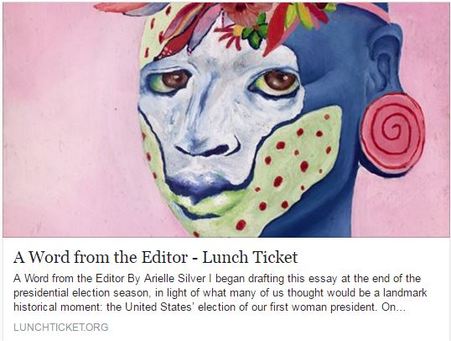 The new Winter/Spring 2017 issue of Lunch Ticket came out a few days ago, and the next day I stepped down from my post as editor-in-chief and passed the baton to my successor. Still, after months of working on pulling together this issue, I'm not ready to walk away. There're so many fantastic interviews, poems, essays, translations, short stories... Start here with my Word from the Editor and then pop over to the magazine: I began drafting this essay at the end of the presidential election season, in light of what many of us thought would be a landmark historical moment: the United States’ election of our first woman president. On November 8, as we are all too aware, despite winning the popular vote by (as of this writing) over two million, the Electoral College results tallied in favor of her opponent. Spurred by a campaign rhetoric that relied on a cornerstone of violence, fear, and hatred, the president-elect continues to provoke considerable domestic and international criticism. Shocked by what this outcome revealed—that nearly half of voters responded positively to his rhetoric—, many say that it appears we have two Americas, red and blue. Like warring tribes, we’ve now turned away from each other and returned to our camps, separated by a modern Mason-Dixon line in the divided states of America. We curl up with our own news sources, revel in our own truths. The fissure is too deep, we say, and so draw a line that relieves us of reconciling our differences, scrutinizing root causes, or compromising our values. Fissure is just one analogy to describe the state of the (dis)union. We could, instead, look at our picture of this country and say that part of our view was obscured. As political theorist Andrew Robinson writes, “Any particular way of seeing illuminates some aspects of an object and obscures others.” With our sights set on equality, community, and eco-conservatism, we now realize that we missed a large segment of the picture. Feminist scholar Julie Jung calls this synecdochic understanding: using part of something to represent the whole. As it turns out, many of us—including every major newspaper and pollster—were looking at the U.S. through this device. The election results lifted the shroud. Now we’re squirming in discomfort about two new sources of awareness: that which was underneath the shroud and the shroud itself. As long as there’s a shroud, the former cannot be helped. But we should question why we didn’t investigate our blind spots, why we overlooked the shroud. Often writers think of revision as a task grudgingly—or happily—undertaken to perfect our work. We reread our words seeking moments of disconnect for the bits that don’t seem to belong, and we assess their worthiness to the story. We want our work to make sense, so we seek a narrative arc. If something doesn’t propel the narrative or make consistent sense for a character, it falls to the cutting room floor. Smooth out the wrinkles, wash out the stains, turn in the essay, get an A. But what if we revised revision? What if instead of smoothing out the wrinkles, we held them to a magnifying glass? In this approach, so-called flaws would not to be brushed away but, rather, probed. As writers, artists, and activists, can we approach our work so that revising—that process of looking closely at our work for moments of disconnect—is not a process of glossing over but of examining more closely? Instead of manipulating truth in service of a smooth narrative, we should examine our motives for creating a smooth narrative to begin with. In this light, revision becomes not an act of making something flawless but, rather, making it more whole. As Annie Dillard writes in Pilgrim at Tinker Creek, “Go up into the gaps. If you can find them; they shift and vanish too. Stalk the gaps. . . This is how you spend this afternoon, and tomorrow morning, and tomorrow afternoon.” Given this approach to revision, what cultural material have we rushed to brush away before truly exploring? In our attempts to move toward equality and understanding, it’s now apparent that we’ve not fully attended to the underlying bigotry, misogyny, and xenophobic ills that this election season oozed to the surface. We have a country half-peopled by those who either resonate with or can overlook narratives of distrust and resentment for “the other.” Although it feels for many that we’ve now taken six decades’ worth of steps back, perhaps the reason we need to do so is because our progressive vision glossed over too many foundational cracks. While we were moving forward, half the country planned a revolt. If we’re committed to walking our talk of inclusion, then we need to hunker down in this new climate to revise our understanding of the United States and build something more tenable. It was with these thoughts that I have been turning the pages of our tenth issue, which is my last as editor. It appears to me that what we’ve put together here is a multi-layered, multi-genre conversation about gaps in cultural narratives, moments of disconnect or desire for connection, and an attempt to, as Dillard wrote, stalk the gaps. If anything, the eighty-two pieces in this Winter/Spring 2017 issue, from interviews to art to new and translated work in fiction, poetry, and nonfiction, point to the value and necessity of open discourse, of reading the white space between words along with the words themselves. In her interview for our Lunch Special, Maggie Nelson says “every draft is slathered with self-deceptions,” which we must examine in order to get to honesty. In a separate interview, artist Harry Dodge responds to Nelson’s The Argonauts by reminding us that “any piece of art, whether nonfiction or otherwise, is a construction” and asks “whether language is able to do the work of describing fluidity, or anything really.” In his interview, poet Fred Moten talks about how writing should not suppress what he calls the monstrous, the strange, the radically disruptive fundamental aspects of life. And Susan Southard says of Nagasaki, a braided nonfiction narrative about the U.S. bombing in WWII, “I felt it was so important to bring [the survivors], still hidden from view in our country, into visibility.” This theme of visibility is stitched throughout the issue. We could say the stitches are like sutures, repairing cultural wounds, but the stitches are also like hand-sewn needlepoint, each threaded with its own palette, in its own frame, its own unique picture. Gabo Prize winner Jim Pascual Agustin’s poem Danica Mae is about the recent mass killings in The Philippines. Diana Woods Memorial Prize winner Sarah Pape’s CNF piece Eternal Father & The Other Army brings to light a nuanced experience of depression. Call to Arms, Marine Lieutenant Lisbeth Prifogle’s featured essay, is about the need for publishing “stories that could alleviate the fear, isolation, depression, and anxiety of joining the old world after a deployment.” Grace Lynne’s featured art collection, The Exploration Series, seeks to show “Black culture in a new light, and open people up to a side of my culture that they haven’t seen.” I could, without reservation, list every single one of the eighty-two pieces in this issue. It is a beautiful, heartbreaking, mind-expanding collection, and an honor to publish this one as my last. After three issues as editor, this is a bittersweet goodbye as I now step away from the journal. My studies in the Antioch MFA program and, recently, as a Post-MFA in Pedagogy student are nearly complete, and Lunch Ticket has and always will be student-run. My work leading the editorial and production staff, reading our submissions, developing relationships with our writers and artists, and connecting with literary and art lovers who come to our pages has been humbling, inspiring, and invaluable for my personal growth as a writer and as a woman in this world. Thank you for being here, for sharing your stories, for reading ours. And take good care, Arielle Silver Editor-in-chief, Lunch Ticket Six months ago when Darby and I planned to run off to a yoga retreat the second weekend of November, we had no idea how much we'd need the reprieve from the city on this particular weekend. All the emotions from last week's election - the despair, the rage - are still with me. Now, though, they've softened from a weekend of breaking bread with a group of compassionate, creative people, sleeping in a tiny cabin in the woods, and unplugging from media storms and news updates.
Something shattered last week. For weeks, for months, we thought it would be a glass ceiling. It turns out it was something else entirely, and things feel very fractured, very much in pieces. Many of us are not only grieving the loss of what we almost had -- and that loss is great -- but now we are also gaping wide-mouthed at the mammoth clean-up job we hadn't seen coming. Many of the values so many of us hold dear have slipped, and how far we can't yet say. But at the yoga retreat I remembered a story from years ago, and that reminded me of a simple lesson that my kidlets learned back in their horse riding lessons: Where you look is where you'll go. I have no delusions about our new president-elect. He spent the past year telling us who he is and what he stands for, and it is the exact antithesis of everything I would want in a president. But I don't want to assume that half the nation voted for him out of malice. I don't want to focus on the hate and fear. If I rubberneck those values, I'll either crash into the folks who are on the road with me or end up U-turning and joining the other pack. When I look around at my fellow travelers, the ones committed to the direction of social progress and positive change, I see fierce intelligence, compassionate justice-fighters, inspiring artists. They are kind people, people who believe that lifting others up will help us all rise. This weekend helped me remember to keep looking forward. Oh yes, I'll keep a scrutinous eye on the new administration. But I'm not going to rubberneck the election or speculate on whether what I hate in the president-elect is what those who voted for him love. Where you look is where you'll go. I want to go to a place where diversity is celebrated, there is equity and equality for all, we care and try to keep safe the most vulnerable among us, and we protect our natural resources. From now on, that's where I'm putting my attention. My Tuesday excitement turned to sadness on Wednesday, which turned to anger on Thursday. The initial sadness was debilitating so when the anger came, I welcomed the charge: Energy drives action, and action brings progress and change.
Now it's Friday, and I'm continuing to observe my thoughts and emotions as they morph. Perhaps it was Darby's uncontrolled laughter last night as, while reading the latest Bill Bryson book, he tried to share a humorous passage but was laughing too hard to get out the words. Laughter-tears fell from the corners of his eyes, and I laid my head on his belly and let the convulsions break up my tension. Then I put on a Leonard Cohen playlist, and this morning I found myself singing. Or maybe it's because while Darby was reading the Bryson, I was editing this week's Lunch Ticket blog. It's a collection of brief post-election feelings from many on the LT team. We on LT have exchanged dozens of emails this week, both before and after the election, and already, like me, emotions are shifting. This collection serves as a snapshot in time. As I read their words last night, I found my nerves calming. I hope you find the same solace. Wednesday's children were full of woe, and Thursday's children were livid, but Friday's children will rock the vote for the world we want to live in. Read it here: http://lunchticket.org/wednesdays-children/ On a day when I can barely construct a sentence much less think about writing a whole book, my mentor calls me and reminds me that I have already written a book, that I need to get it published, and that I need to get started on the second one because I am a good writer and a good teacher and I need a book on my CV for when I'm ready to start my university faculty job search.
It took me a moment to understand what he was saying. Then I remembered -- I am writer, and I have already started on the second book, and if my anger over this election (that is triggering a lifetime of angers about cultural injustices) stops me from doing this work and achieving my dreams, I am playing right into the hands that hold the glass ceiling over us, the hands of the ones who whistle when we walk by, say we're too emotional to get anything done, say we have nothing worthwhile to say anyway. The ones who cheer us on when we're "attractive" and talk over us when we're "confrontational," "shrill," or "nagging." The ones who say "women's lit" is different from "literature," "women issue memoirs" don't sell, who publish bylines by men far outside the gender ratio. The ones who tell us we can't be astronauts or president or musicians. The ones who burn us at the stake or drown us or just suffocate us with a patriarchal pack of lies that, at this point, is about as thinly veiled as the emperor's clothes. I won't get any writing done today. I'm far too agitated. But tomorrow or Friday or next week or in December, I am going to strap on my jet pack and use this fire to blast me through that oppressive roof to that star I keep wishing on. |
Archives
May 2019
Categories
All
|
